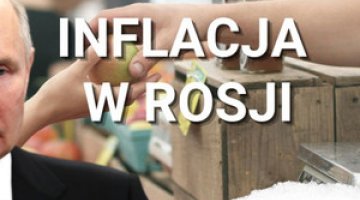Moldova: diaspora votes propel Maia Sandu to re-election
On 3 November, Maia Sandu, the de facto leader of the ruling pro-Western Party of Action and Solidarity (PAS), won Moldova’s presidential run-off election. She received 55.4% of the vote, while her opponent Alexandr Stoianoglo, a former prosecutor general supported by the pro-Russian Party of Socialists (PSRM), garnered 44.6%. Voter turnout reached 54.31%; 19% of all votes (approximately 330,000) were cast by members of the Moldovan diaspora residing primarily in the EU, the United Kingdom, and the United States.
The first round on 20 October, in which Sandu secured 42% of the vote, was accompanied by a referendum on enshrining European integration in the country’s constitution, with 50.4% of participants voting in favour of the proposal.
Sandu’s victory is primarily attributed to the unprecedented engagement of the Moldovan diaspora, as Stoianoglo performed slightly better within the country. Her win represents a political and organisational success for the pro-Western ruling bloc, particularly in the face of significant interference from Russia, which had heavily invested in a large-scale vote-buying operation.
There is little doubt that Russia will attempt similar tactics to influence the outcome of Moldova’s parliamentary elections, scheduled for mid-2025, which will be pivotal for the country’s path towards European integration.
Commentary
- Sandu owes her success primarily to the extraordinary mobilisation of Moldovans living abroad (within the country, Stoianoglo edged her out with 51.2% of the vote). In Sunday’s voting, diaspora turnout (with 82% voting for the incumbent president) was over 35% higher than in the first round. It is estimated that up to 30% of this group, numbering over a million, participated in the runoff, setting an all-time record. The decision by the populist, Russia-linked Renato Usatîi, who received around 14% in the first round, may also have influenced the outcome. His voter base largely overlaps with Stoianoglo’s, yet he did not endorse the former prosecutor general. In a public statement, he criticised both the pro-Western bloc and the Party of Socialists, which may have dissuaded some of his supporters from voting. In this way, he is likely positioning himself as an ‘anti-establishment’ politician ahead of next year’s parliamentary elections.
- Each round of voting and the referendum were accompanied by unprecedented Russian interference aimed at blocking Sandu’s re-election and the constitutional amendment (see ‘The presidential election and referendum in Moldova: a yellow card for the pro-Western camp’). The most prominent example of Moscow’s efforts was large-scale vote-buying orchestrated by Ilan Șor, a fugitive oligarch representing the Kremlin’s interests who fled the country in 2019. Using a network of activists and bots, he recruited Moldovans to vote against the incumbent president and European integration. In September and October alone, he reportedly spent nearly $40 million on these efforts – twenty times more than the campaign costs of all the candidates combined. Moldovans living in Russia, whose government provided only two polling stations with a total of 10,000 ballots, were reportedly flown to Moldova and its consulates in Minsk, Baku, and Istanbul to enable them to vote. At several polling stations in Western countries, including Liverpool and Frankfurt, voting was disrupted by false bomb threats. Furthermore, thousands of Moldovan journalists, public figures, and ordinary citizens received threatening phone calls before the second round.
- Between the first and second rounds, the Moldovan government intensified its efforts to curb Russian interference. The government’s primary objective was to dismantle the network of paid voters created by Șor. Security services arrested dozens of individuals linked to the vote-buying operation, while the government launched a media campaign to inform both recruiters and vote-sellers about the criminal penalties for such actions. Security services also conducted a series of searches in the offices of four political parties controlled by Șor, seizing substantial amounts of cash. The government also sought to curb the organised transport of voters, which is prohibited under Moldovan law. On election day, one of the main bridges connecting the separatist region of Transnistria with the right bank was temporarily closed for several hours, likely in response to a rising number of voters from Transnistria who are permitted to cast their ballots only in areas controlled by the government in Chișinău.
- Sandu’s success in the presidential race is a significant reputational boost for the PAS ahead of the upcoming parliamentary elections. As Moldova is a parliamentary republic, the outcome of these elections, rather than the presidential contest, will be crucial for advancing the country’s EU integration process. There is little doubt that Russia will interfere in this vote with at least the same intensity. Pro-Russian forces are also likely to stoke divisions within Moldovan society for propaganda purposes, pushing a claim that economic migrants in the West are effectively deciding Moldova’s future, while Moldovans in Russia are being denied full voting rights. Sandu’s defeat on Moldovan territory suggests a relatively high level of public dissatisfaction with the PAS government, resulting mainly from rising prices which have particularly affected those groups who have opted not to emigrate, such as pensioners.




